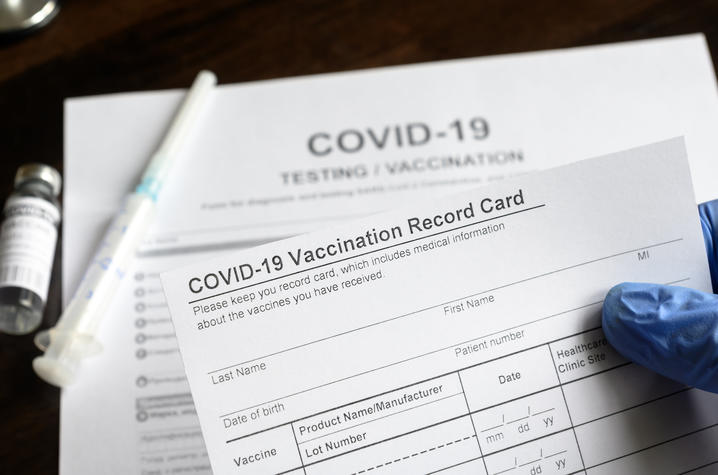UK Study to Address COVID-19 Vaccine Hesitancy Among Black Communities
LEXINGTON, Ky. (July 26, 2021) — A University of Kentucky study launching this summer will seek to address COVID-19 vaccine hesitancy among racial and ethnic minority populations in the Commonwealth.
The project, funded by UK’s UNited In True racial Equity (UNITE) Research Priority Area, will enhance understanding of COVID-19 vaccine skepticism among populations historically less likely to become vaccinated, particularly Black people.
Racial and ethnic minorities are historically less likely to become vaccinated for a number of reasons including medical mistrust. A recent Pew research survey found that Black adults expressed less confidence in the coronavirus vaccine research and development process — a judgment closely aligned with intent to get vaccinated.
“Success in combating the spread of COVID-19 depends on sufficient numbers of individuals becoming immunized,” says Kimberly Parker, Ph.D., study lead and associate professor in the UK College of Communication and Information (CI) Department of Integrated Strategic Communication. “The outcomes of this study could contribute to messaging that resonates with communities of color who are reluctant or skeptical to get the COVID-19 vaccine.”
Bobi Ivanov, a professor in the Department of Integrated Strategic Communication, and Diane Francis, assistant professor in the Department of Communication, will serve as co-investigators on the project. CI graduate students Sarah Geegan and Adam Tristan will also assist the study. Focus groups will be moderated by Jardin Dogan, a graduate student in the College of Education.
Throughout spring of 2021, UK partnered with predominantly Black churches in the Lexington area to operate mobile vaccine clinics. With focus groups and in-depth interviews, Parker’s research team will gain insight from community members who accepted and declined invitations to these clinics, as well as immunizers who worked at them.
They will then use this understanding of vaccination attitudes to develop and test a series of messages designed to promote vaccination among hesitant members of Lexington’s Black community.
If effective, these messages could form the basis of a strategy for messaging interventions to address vaccine hesitancy among underserved populations, Parker says.
Parker's project was selected after UNITE put out a request for pilot project applications to help address COVID-19-related health disparities among racial and ethnic minorities in Kentucky.
“COVID-19 is yet another major health disparity disproportionately impacting communities of color. And the impacts go beyond disparate access to care and the quality of health care received by people of color,” said UK’s Assistant Vice President for Research, Diversity & Inclusion Danelle Stevens-Watkins, Ph.D., who leads UNITE. “The effort is another example of how research at UK is helping to build community partnerships and bridge the gap between UK and communities of color.”
After the project’s conclusion next year, the research team will submit results for publication and seek additional extramural funding to build additional strategic interventions targeting vaccine hesitancy.
Launched last year, UNITE is focused on supporting research that will promote racial equity and aims to recruit and retain racially diverse faculty, staff and students at UK. The research priority area has fostered a number of other initiatives and opportunities for collaboration to support diversity and inclusion in research at UK.
The UK Research Priorities Initiative, funded by the Office of the Vice President for Research, encompasses seven priority areas: cancer, cardiovascular diseases, diabetes & obesity, diversity & inclusion, energy, neuroscience, and substance use disorder. These areas were chosen based on local relevance, existing funding strength, sustainability and disciplinary scholarly diversity. Learn more at www.research.uky.edu/unite-research-priority-area/unite-research-priority-area.
As the state’s flagship, land-grant institution, the University of Kentucky exists to advance the Commonwealth. We do that by preparing the next generation of leaders — placing students at the heart of everything we do — and transforming the lives of Kentuckians through education, research and creative work, service and health care. We pride ourselves on being a catalyst for breakthroughs and a force for healing, a place where ingenuity unfolds. It's all made possible by our people — visionaries, disruptors and pioneers — who make up 200 academic programs, a $476.5 million research and development enterprise and a world-class medical center, all on one campus.






